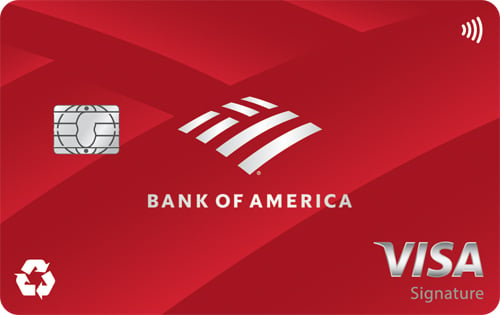Missouri-based MRV Banks is an independent bank that offers both its own financial products and partners with other brands to offer credit cards.
The lineup of MRV Banks-issued products mainly features starter cards that can help those with thin or no credit. For example, by and large they’re usable anywhere and report your payment history to the credit bureaus. However, there are some downsides to many of the cards in MRV’s portfolio, in the form of costly fees and mediocre benefits.
Here’s a closer look at some of the credit cards the bank issues.
🤓Nerdy Tip
MRV Banks also offers its own branded credit cards, like an Everyday Rewards+ card and a Travel Rewards+ Card, among others. But those cards are not issued by MRV Banks itself, but rather by Elan Financial Services.
Groundwork Card
There are two versions of this card — a starter version called the Groundwork Visa Secured card and an unsecured version called the Groundwork card. Like similar cards, the secured option requires a deposit, which also acts as the card’s credit limit. In this case, holders can deposit between $300 and $3,000. It also reports your payment history to all three major credit bureaus, which is crucial for credit-building. However, it comes with a $39 annual membership fee, which can be a barrier to some, and additional fees that can add up and become costly. For example, the card charges a late payment fee, an express card delivery fee and a fee for paper billing statements.
The non-secured version, too, also may charge an annual fee: $50 when you open your account and then $39 yearly after the initial payment. But not all cardholders will be charged an annual fee, which is determined based on an applicant’s creditworthiness and other factors. The ability to earn rewards with the card is also determined by one’s credit. Holders with stronger credit scores can earn up to 1 point per dollar spent. Points are worth an industry-standard penny each and can be redeemed for statement credit, merchandise and travel. They expire after three years.
Revvi Card
Like other MRV Banks-issued cards, the Revvi Card aims to help consumers with limited credit histories. But it comes with pitfalls that can make it inaccessible and expensive for many. For one, the card charges a slew of fees. For example, if you’re assigned the minimum credit limit of $200, you’ll be charged a $50 annual fee for the first year (then $48 every year after), a $6.25 monthly service fee after your first year, and a one-time $95 program fee that’s required before holders can use their cards — and that’s just a sampling of possible costs. Plus, these fees count against the card’s credit limit, which can result in high credit utilization before you’ve even used the card to make purchases.
Despite its limitations, the card offers one crucial credit-building tool — it reports to all three major credit bureaus. It also earns rewards, although they won’t get holders very far: When you make a card payment, you’ll earn 1% cash back (in the form of points that are worth a penny each). Points are redeemable in 500-point increments only, and you must be a Revvi cardholder for six months before you can start redeeming them.
Note that the Revvi Card requires a linked checking account to qualify.
Fisher-Price Card
The Fisher-Price College Savings Mastercard was discontinued in April 2024 and is no longer available for new applicants. All accounts are currently closed, but when open, the card was meant to help those who were interested in adding to their college savings. Holders could earn 2% back on all purchases if they deposited their rewards in an eligible 529 plan — and 1% back when rewards were not redeemed this way. Cardholders were also elgible for a small welcome bonus.

ALTERNATIVE PICK: As an alternative college savings option, consider a Bank of America®-issued consumer credit card that allows you to redeem rewards for credits to a qualifying 529 account with Merrill. One such qualifying card is the $0-annual-fee Bank of America® Customized Cash Rewards credit card.
It requires a bit more work than the Fisher-Price card, but earns higher possible rewards rates: 3% back on a category of your choice (from a list of six) and 2% back on grocery stores and wholesale clubs, for the first $2,500 of combined bonus category/grocery store/wholesale club spending per quarter; after hitting that threshold, you’ll earn 1% back on these purchases. (All other purchases earn 1% back.) Rewards can be redeemed for statement credit, a check, a direct deposit into a Bank of America® checking or savings account, an eligible 529 account or a contribution to an eligible Merrill account. Note that qualifying Bank of America® credit cards have a $25 minimum for one-time redemptions to a 529 account.
🤓Nerdy Tip
MRV Banks is also the issuer of the Coign card and the Advantage Financial Solutions Boost Card — the former of which requires joining a waitlist to apply, and the latter of which is not yet available to applicants. The Boost card is intended for those looking to build their credit and won’t require a credit check to apply. Like traditional secured cards, it will require a refundable upfront security deposit.


